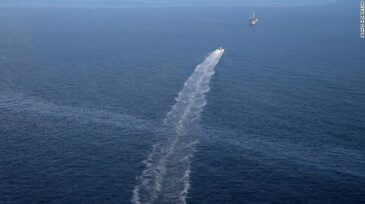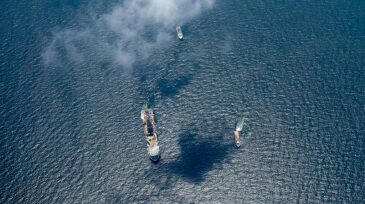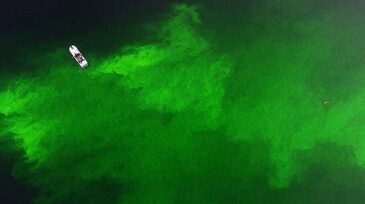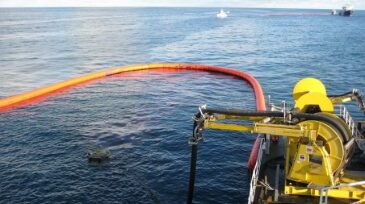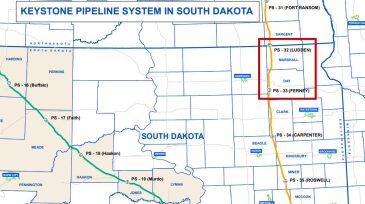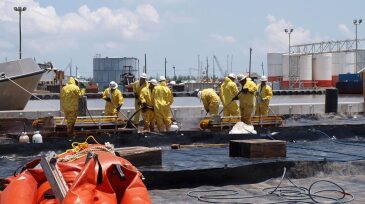spills
-
A new federal study estimates that, each day, about 380 to 4,500 gal of oil are flowing at the site where a company's oil platform was damaged after a hurricane. That's about a hundred to a thousand times worse than the company's initial estimate.
-
Up to 1,000 gallons of oil per day are being removed from the site of the Taylor Energy spill, says the owner of the company that installed a containment system.
-
The organizations will receive more than $4.1 million for research projects aiming to improve protocols to minimize the environmental effect of oil spills in water.
-
Engineers from the Monterey Bay Aquarium Research Institute have demonstrated a new use for the institute's long-range autonomous underwater vehicles—detecting and tracking oil spills.
-
British Columbia is seeking to enhance its regulatory spill response regime across the province by way of a phased approach. Phase 2 is currently under way, and comments on this process are due by the end of April 2018.
-
Norwegian suppliers Framo, Maritime Partner, Norbit Aptomar, and NorLense have come together to create the Oil Spill Recovery Vessel Group to offer a complete oil-spill-response solution.
-
The British Columbia government is moving forward with the second phase of spill regulations, announcing further stakeholder engagement on important elements such as spill response in sensitive areas and geographic response plans.
-
Weights used in the original construction of TransCanada’s Keystone Pipeline in South Dakota were identified as a preliminary cause of the failure that resulted in a 210,000-gal spill in November.
-
Workers who were likely exposed to dispersants while cleaning up the 2010 Deepwater Horizon oil spill experienced a range of health symptoms including cough and wheeze and skin and eye irritation, according to scientists at the National Institutes of Health (NIH).
-
The Pipeline and Hazardous Materials Safety Administration (PHMSA) is cracking down on smaller violations in the crude oil, petroleum, and hazardous liquid industries to combat a slow rise in the number of pipeline accidents.

